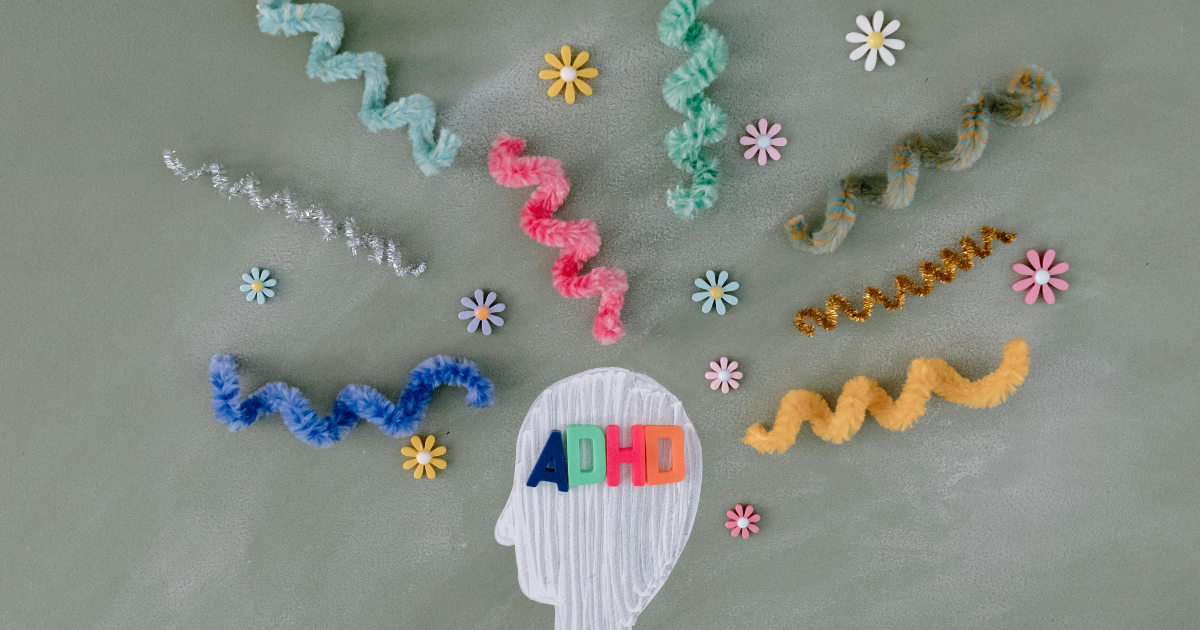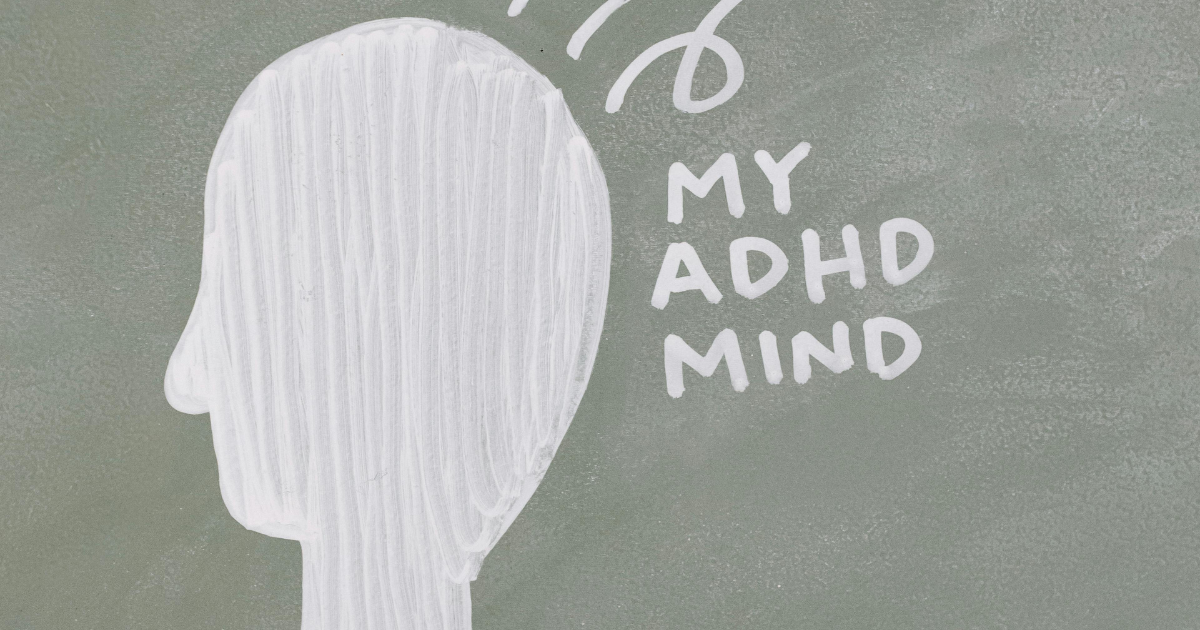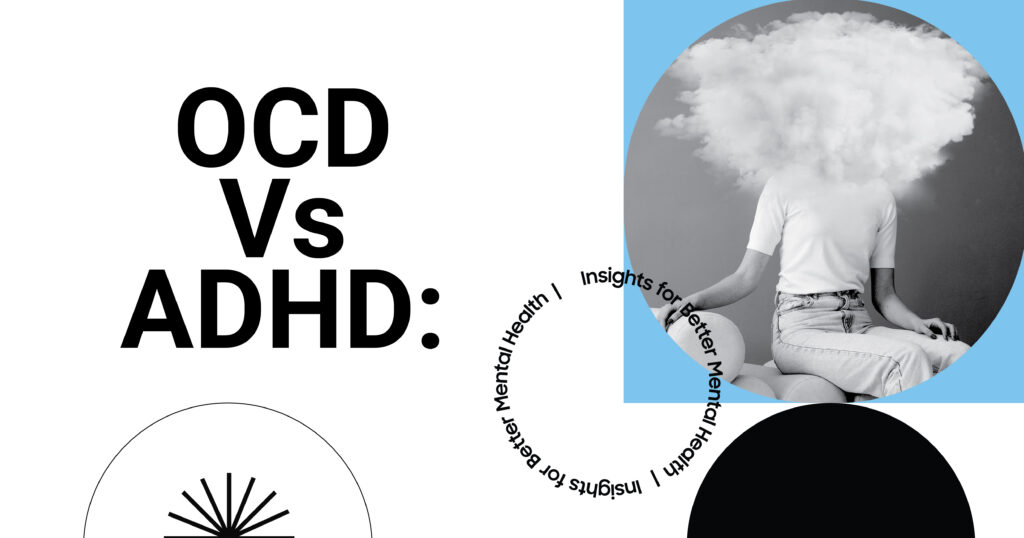Obsessive-compulsive disorder (OCD) and attention deficit hyperactivity disorder (ADHD) share overlapping behavioral symptoms, yet their origins remain different. The two neurodevelopmental disorders impact attention span and emotional management, yet they generate unique patterns that require individualized therapeutic methods.
It is challenging for young people to distinguish between these disorders because their impulsivity and repetitive actions seem comparable at first glance. Inadequate diagnosis of these conditions leads to delayed appropriate treatment, while creating detrimental cycles of self-doubt, disappointment, and reduced productivity.
The article distinguishes between obsessive-compulsive disorder and attention deficit hyperactivity disorder by analyzing their main distinctions in mental processes, together with emotional responses, before demonstrating methods to treat symptoms by using appropriate diagnosis and cognitive behavior therapy approaches.
Understanding the Basics of OCD and ADHD
The first step to grasp these conditions needs an exact description of their core features. The core features of obsessive-compulsive disorder consist of obsessions, which patients describe as intrusive thoughts, and compulsions, which patients perform to achieve safety and reduce anxiety. The main characteristics of attention deficit hyperactivity disorder as a neurodevelopmental disorder consist of inattention, hyperactivity, and impulsivity, which affect executive function and self-regulation abilities.
These two disorders cause identical behavioral and attention problems, but their mental mechanisms function differently.
| OCD | ADHD |
| Anxiety-driven compulsions | Neurologically-driven impulsivity |
| Rigid behavior patterns with internal distress | Spontaneous, distractible behavior |
| Intrusive, repetitive thoughts | Difficulty sustaining focus or attention |
| Tries to reduce perceived threat | Often unaware of behavior until after it occurs |
One is dominated by over-control, and the other struggles with under-control and scattered attention.
Symptoms and Behavior Differences Between OCD and ADHD
The brain system of executive function shows opposite effects between obsessive-compulsive disorder and attention deficit hyperactivity disorder, although both disorders disrupt its operation. The inability to control their actions in ADHD leads to difficulties with both beginning and completing tasks. The need to perform tasks according to specific rules until reaching a “just right” state leads people with OCD to develop excessive control and perfectionistic tendencies.
The diagnosis depends on understanding why a person behaves in a certain way, as well as their specific behavior. Accurate identification is essential not only for effective treatment but also for improving long-term mental health outcomes in individuals managing anxiety disorders and related challenges.
Behavioral Clues to Watch For:
- The purpose of OCD behaviors involves deliberate repetition to reduce anxiety symptoms.
- ADHD behaviors stem from impulsive and unplanned reactions, which are triggered by outside influences.
- People with OCD usually understand their compulsions and experience distress because of them.
- The behaviors of ADHD patients emerge spontaneously while their actions stay hidden from them, even though they may not view their actions as problematic.
- OCD triggers avoidance behaviors because patients want to escape triggering factors, while ADHD causes people to rapidly take on new challenges without preparation.

These behavioral differences show minimal surface-level changes but generate substantial effects on therapeutic intervention methods.
Executive Function Challenges in OCD Vs ADHD
Both OCD and ADHD disrupt executive function, but they cause opposite effects on this brain system. People with ADHD struggle to control their behavior, which leads to challenges with starting and finishing tasks. OCD causes people to develop excessive control and perfectionistic tendencies since they need to perform tasks according to specific rules until they reach a state of “just right.”
Every day life creates challenges for both groups, yet the causes of these challenges differ between them.
| Executive Function Area | OCD | ADHD |
| Task Initiation | Avoids starting due to anxiety or perfectionism | Forgets or gets distracted before starting |
| Organization | Over-plans or rigidly structures tasks | Struggles to organize or sequence steps |
| Focus | Hyper-focused on rituals or intrusive thoughts | Easily distracted, attention shifts frequently |
| Time Management | Overestimates time needed; gets stuck in tasks | Underestimates time; rushes or misses deadlines |
Knowing the source of executive dysfunction helps clinicians build more effective, customized treatment strategies.
Cognitive Behavior Therapy for Symptom Management
The therapeutic methods and treatment objectives of Cognitive Behavior Therapy (CBT) for OCD and ADHD patients differ based on the specific condition. The Exposure and Response Prevention (ERP) method within CBT for OCD helps patients confront intrusive thoughts without executing compulsive behaviors.
The two therapeutic approaches help patients recognize their thinking patterns through the exchange of unproductive habits with productive ones.
| Therapeutic Focus | OCD | ADHD |
| Core Goal | Reduce anxiety-driven rituals | Improve organization and behavioral control |
| Common Method | Exposure and Response Prevention (ERP) | Cognitive restructuring, behavioral coaching |
| Self-Monitoring | Track compulsions and triggers | Track focus patterns, time use, and emotional shifts |
| Long-Term Focus | Break obsessive cycles and reduce avoidance | Build sustainable routines and adaptive strategies |
CBT is not one-size-fits-all. It works best when tailored to the underlying cause of a person’s behaviors, not just the symptoms on the surface.
Impulsivity and Anxiety in Both Conditions
Doctors diagnose OCD and ADHD differently because both conditions show impulsivity together with anxiety, which can lead to incorrect diagnostic results. The inability to control impulses in ADHD develops because patients have difficulty stopping before taking action. The appearance of impulsivity in OCD resembles other conditions but stems from intense anxiety which drives people to rush into action for emotional comfort.
The essential difference between these conditions lies in the reason behind each action, despite the quick reactions they both display.
| Behavioral Trait | OCD | ADHD |
| Impulsivity Source | Driven by anxiety or the need to neutralize obsessive thoughts | Driven by poor inhibitory control or attention shifts |
| Anxiety Experience | Chronic and internal, focused on intrusive thoughts | Often external or situation-based, related to frustration |
| Emotional Regulation | Overcontrolled and suppressed | Underregulated, quick to react or speak |
Understanding these differences prevents mislabeling someone as inattentive when they’re actually anxious, or vice versa.
Are OCD and ADHD Neurodevelopmental Disorders?
The medical classification of ADHD as a neurodevelopmental disorder indicates its impact on brain development alongside its effects on attention systems, executive function, and impulse control mechanisms. OCD exists as an anxiety disorder through learned behavioral patterns that develop into lasting habits, despite being sometimes confused with developmental issues.
Both conditions stem from brain function problems, although they usually begin to manifest during childhood or teenage years. The similar characteristics between these conditions have led researchers to study them jointly, while doctors sometimes make mistaken diagnoses between them.
| Condition | Disorder Type |
| ADHD | Neurodevelopmental Disorder |
| OCD | Anxiety Disorder |
| Both | Can impact executive function and behavior regulation |
Why These Conditions Are Often Misdiagnosed
The hidden OCD symptoms, which manifest internally as mental rituals and quiet obsessions, remain undetected because they do not produce the same level of disruptive behavior as ADHD symptoms. The wrong diagnosis after a clinical evaluation will produce an inappropriate treatment plan.
Key Reasons for Diagnostic Confusion:
- Behavioral overlap without understanding motivation
- Some people incorrectly identify OCD rituals as signs of distraction or fidgeting behavior.
- The impulsive behavior of ADHD patients often gets misidentified as anxiety or compulsive conduct.
- The primary focus remains on observable behaviors instead of internal mental experiences.
- Educational institutions provide limited training about mental health topics.
The accurate diagnosis holds essential importance because it directly affects treatment outcomes.
Explore Dual Diagnosis Care at Clear Mind Treatment
The diagnosis of both OCD and ADHD simultaneously creates difficulties for the diagnosis and treatment of these conditions. The presence of one condition may hide the symptoms of the other condition, or their symptoms might work against each other. The combination of ADHD and OCD creates challenges because ADHD interferes with ERP therapy for OCD, while OCD creates mental rigidity, which opposes ADHD’s chaotic nature.
Our treatment center at Clear Mind Treatment focuses on handling complex cases. The staff at our facility evaluates each diagnosis layer to distinguish anxiety from impulsivity and obsession from distraction before creating individualized treatment approaches for both conditions.
We understand that no two minds work the same. Visit Clear Mind Treatment for integrated care that respects the nuance of real-world mental health.

FAQs
What are the primary differences in symptoms between obsessive-compulsive Disorder and Attention Deficit Hyperactivity Disorder?
The main characteristics of OCD include recurring thoughts and compulsive actions, which people use to manage their anxiety but ADHD presents as impulsive behavior combined with distraction and poor concentration abilities. People with OCD typically understand their thoughts are unreasonable but individuals with ADHD typically remain unaware of their actions until they finish them.
How does executive function impairment manifest in individuals with OCD compared to those with ADHD?
The rigid thinking patterns in OCD create over-control, which leads to delayed decision-making and task paralysis. The under-control nature of ADHD produces forgetfulness, poor task organization, and inconsistent completion of tasks.
In what ways can Cognitive Behavior Therapy be effective for managing symptoms of both OCD and ADHD?
Through exposure techniques, CBT enables patients with OCD to confront intrusive thoughts while decreasing compulsive behaviors. The treatment for ADHD uses structured routines and goal setting to improve planning, time management, and behavioral awareness.
How do impulsivity and anxiety disorders interplay in people diagnosed with OCD and ADHD?
Neurological undercontrol in ADHD produces impulsive behavior, which typically shows itself through observable actions. The impulsive actions in OCD stem from anxious urges and mental discomfort, although they share some similarities with other conditions.
Why are OCD and ADHD often misdiagnosed or misunderstood as neurodevelopmental disorders?
Neurological undercontrol in ADHD produces impulsive behavior, which typically shows itself through observable actions. The impulsive actions in OCD stem from anxious urges and mental discomfort.








